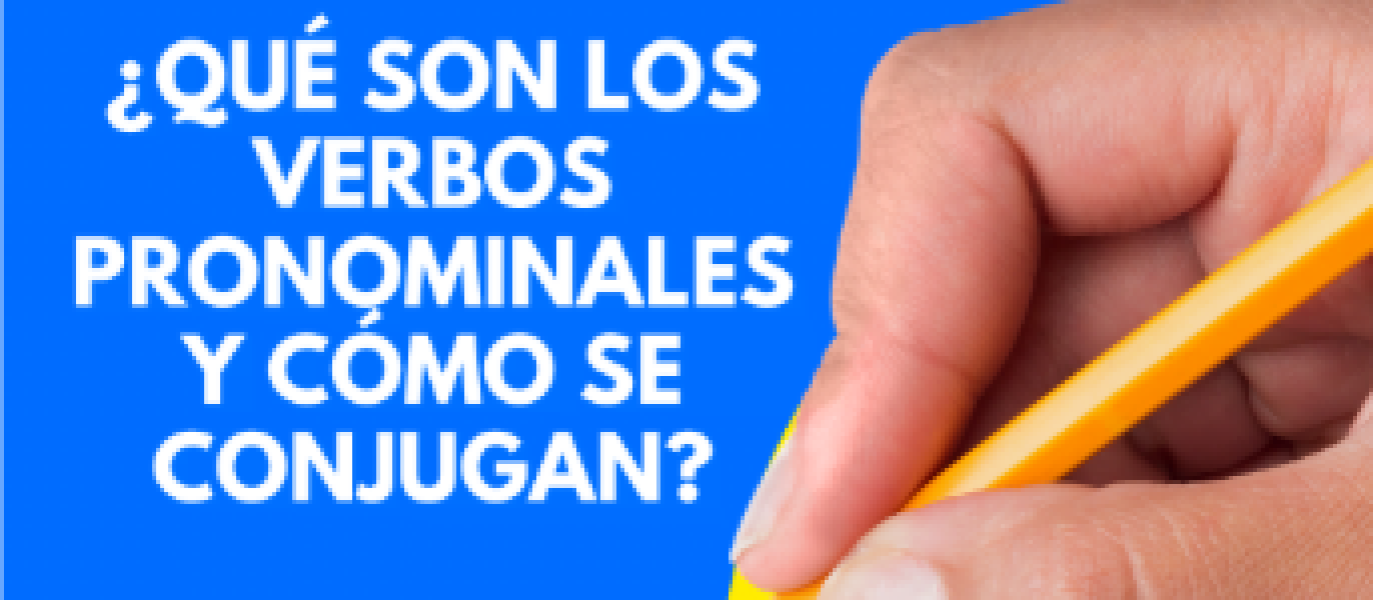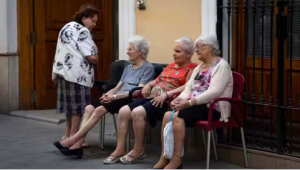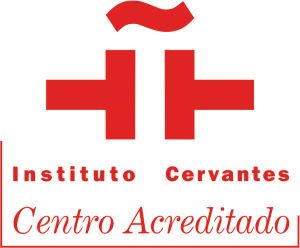Pronominal verbs in Spanish are those that are conjugated with a reflexive pronoun (me, te, se, nos, os). These pronouns agree in person and number with the subject of the verb.
In this article by MaestroMío, we explain what pronominal verbs are, their types, and examples of usage in sentences.
What Are Pronominal Verbs?
Pronominal verbs always include a reflexive pronoun (me, te, se, nos, os) that is part of the verb. These verbs can express reflexive, reciprocal, or idiomatic actions that do not have a direct meaning without the pronoun.
Example:
- María se despierta temprano. (The pronoun “se” is part of the verb despertarse — “to wake up.”)

Types of Pronominal Verbs
A) Reflexive Verbs
The subject performs and receives the action at the same time.
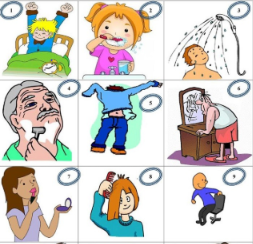
Examples:
- Yo me lavo las manos. (I wash my hands.)
- Tú te peinas antes de salir. (You comb your hair before going out.)
- Nosotros nos vestimos rápido. (We get dressed quickly.)
📌 Tip: If you can add “to oneself” after the verb, it is reflexive.
Example: Ella se mira (a sí misma) en el espejo. (She looks at herself in the mirror.)
B) Reciprocal Verbs
The action is mutual between two or more people.
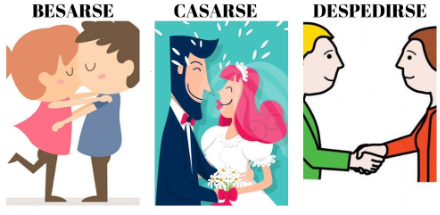
Examples:
- Juan y Ana se besaron en la despedida. (Juan and Ana kissed each other at the farewell.)
- Nosotros nos ayudamos en el trabajo. (We help each other at work.)
- Los amigos se saludan al llegar. (The friends greet each other upon arriving.)
📌 Tip: If you can add “each other” or “one another,” it is reciprocal.
Example: Ellos se quieren (el uno al otro). (They love each other.)
C) Idiomatic Pronominal Verbs
These verbs don’t have meaning without the pronoun. They are always used in a pronominal (reflexive) form.
- Quejarse: to express pain, dissatisfaction, or disagreement about something.
Ejemplo: Me quejo del calor. - Burlarse: to laugh at someone or something with irony or scorn.
Ejemplo: Se burlan del profesor. - Arrepentirse: to regret a past action and wish you hadn’t done it.
Ejemplo: Me arrepiento de no haber estudiado. - Atreverse: to dare to do something risky or difficult.
Ejemplo: ¿Te atreves a decirlo en público? - Darse cuenta (de): to realize, to notice or understand something that wasn’t noticed before.
Ejemplo: Me di cuenta de mi error.
📌 These verbs do not work without the pronoun. They must always be conjugated in a pronominal form.
D) Verbs that Change Meaning in Pronominal Form
These verbs have a different meaning when used with the pronoun.
- Ir / Irse
- Ir: to go somewhere.
Ejemplo: Voy al cine. - Irse: to leave a place.
Ejemplo: Me voy de la fiesta.
- Ir: to go somewhere.
- Dormir / Dormirse
- Dormir: to be asleep.
Ejemplo: Duermo ocho horas. - Dormirse: to fall asleep.
Ejemplo: Me dormí en el sofá.
- Dormir: to be asleep.
- Quedar / Quedarse
- Quedar: to arrange to meet, or to remain somewhere.
Ejemplo: Quedamos en el parque. - Quedarse: to stay in one place, or to end up in a state.
Ejemplo: Se quedó sorprendido.
- Quedar: to arrange to meet, or to remain somewhere.
- Volver / Volverse
- Volver: to return.
Ejemplo: Vuelvo a casa. - Volverse: to become or turn into (a change in character or state).
Ejemplo: Se volvió loco.
- Volver: to return.
- Llevar / Llevarse
- Llevar: to carry or transport something.
Ejemplo: Llevo el libro a la escuela. - Llevarse: to take something with oneself; also used to describe relationships.
Ejemplo: Se llevan bien.
- Llevar: to carry or transport something.
📌 Ready to practice what you’ve learned?
Here are some exercises (with answers) to help you practice pronominal verbs.
Exercises: Practice Pronominal Verbs
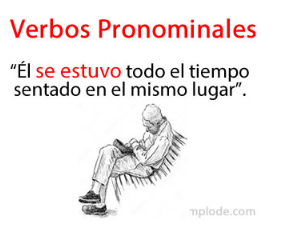
Exercise 1: Complete with the correct pronoun (me, te, se, nos, os)
- Yo ___ levanto temprano todos los días.
- Ellos ___ saludan al llegar a clase.
- Tú ___ peinas antes de salir.
- Nosotros ___ despedimos de los amigos.
- María ___ maquilla en el baño.
Exercise 2: Choose the correct option
- (Dormir / Dormirse) – Ayer me quedé en el sofá y ___ viendo una película.
- (Llamar / Llamarse) – Mi hermano ___ Luis.
- (Volver / Volverse) – Después de muchos años en el extranjero, Marta ___ a España.
- (Quejar / Quejarse) – Los estudiantes siempre ___ cuando hay muchos deberes.
- (Llevar / Llevarse) – Ellos ___ muy bien con sus vecinos.
Exercise 3: Transform into reflexive form
Example: Yo lavo el coche. → Yo me lavo las manos.
- Pedro peina a su perro. → __________
- Tú maquillas a tu hermana. → __________
- Ellos despiertan a su hijo. → __________
Exercise 4: Identify the type of pronominal verb
Options: Reflexivo, Recíproco, Idiomático, Con cambio de significado
- Nos abrazamos después del partido. → __________
- Me arrepiento de no haber estudiado más. → __________
- Se quedaron en casa porque llovía. → __________
- Ella se viste para ir al trabajo. → __________
- Ellos se besaron en la despedida. → __________
Exercise 5: Correct the sentence if needed
- Yo me llamo a mi madre todos los domingos.
- Ellos se fueron temprano de la fiesta.
- Nosotros nos ayudamos en el proyecto.
- Tú te quejas del frío.
- María se duerme ocho horas todas las noches.
✅ Answers
Exercise 1:
- me
- se
- te
- nos
- se
Exercise 2:
- me dormí
- se llama
- volvió
- se quejan
- se llevan
Exercise 3:
- Pedro se peina.
- Tú te maquillas.
- Ellos se despiertan.
Exercise 4:
- Recíproco
- Idiomático
- Con cambio de significado
- Reflexivo
- Recíproco
Exercise 5:
- ❌ Incorrect → Yo llamo a mi madre todos los domingos.
- ✔ Correct
- ✔ Correct
- ✔ Correct
- ❌ Incorrect → María duerme ocho horas todas las noches.

